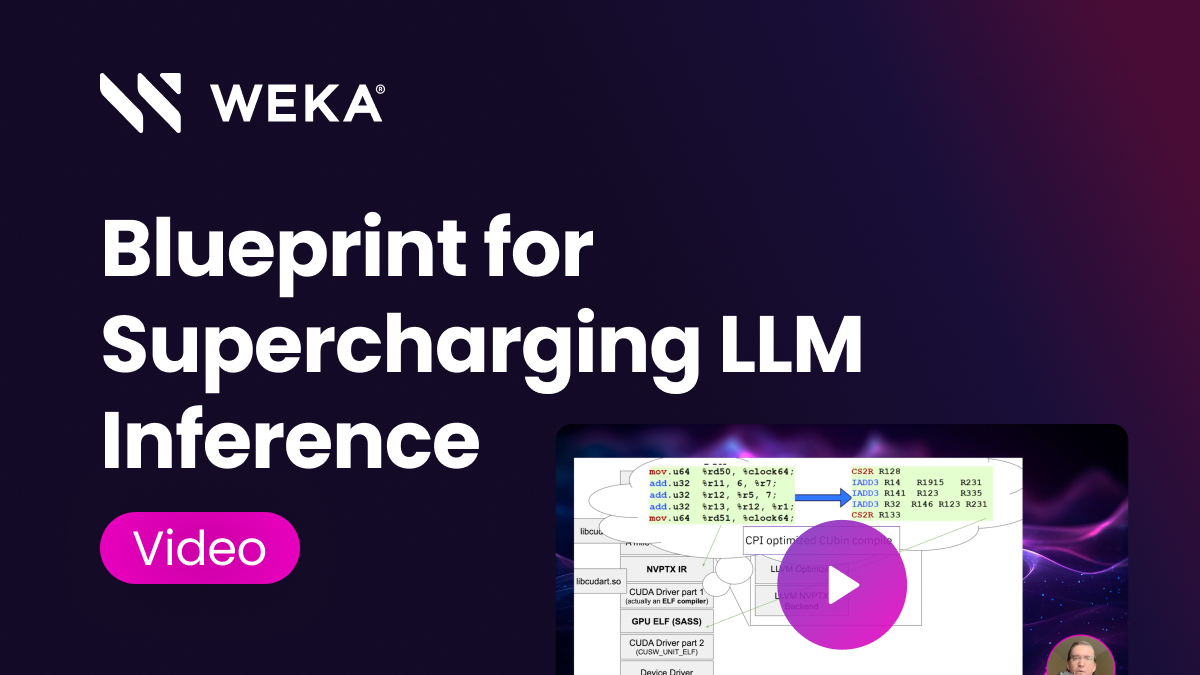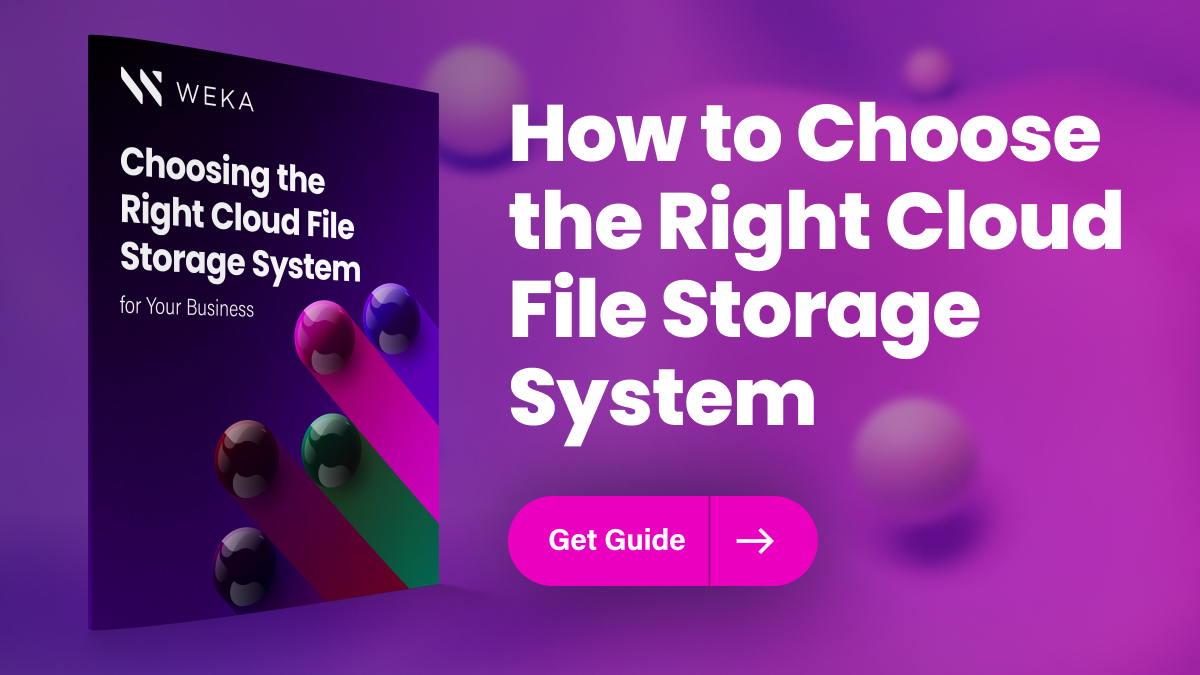Enterprise Cloud Storage (Everything You Need to Know)

We discuss enterprise cloud storage, why you need it, and everything you need to consider for your enterprise cloud storage solution.
What is enterprise cloud storage? Enterprise cloud storage is a way for organizations to store their data online so that users can access it from any location securely. Enterprise cloud storage offers many benefits, including the following:
- Flexibility
- Scalability
- Disaster recovery
- Rapid deployment
How Does Enterprise Cloud Storage Work?
Enterprise cloud storage is a form of information storage used by businesses and other organizations to strengthen their data security and durability while outsourcing critical storage functions. Cloud storage is a distributed form of computation where multiple server clusters act as a single computational resource that multiple users can access simultaneously.
A third-party vendor almost always manages enterprise storage. Because a third party manages enterprise cloud storage, these vendor also manage critical features of the service, including the following:
- Scaling and Capacity: The primary strength of any cloud infrastructure is its ability to scale as demand for capacity increases or decreases. Because the front-end of a cloud platform is a singular interface for all intents and purposes, vendors only need to add or remove back-end physical resources using automation services to scale storage space whenever needed.
- Security and Compliance: More than almost any other organization, enterprises know the challenges of facing modern cybersecurity threats. Additionally, enterprises are often the organizations most likely to face complex compliance demands in their industries. Combine these challenges with the far-reaching complexity of enterprise organization and vendor relationships, and they quickly become a headache. However, managed enterprise cloud solutions provide a centralized way to outsource these concerns. Cloud providers dedicated to providing cloud services can dedicate significant resources to building secure and compliant systems that businesses can use without knowing the ins and outs of implementation.
- Resiliency and Recovery: Data is a valuable commodity, and problems with storage services can interfere with or destroy that commodity. Downtime, data loss, and data theft are real problems for enterprises. However, enterprise users can count on reliable backup routines, disaster recovery procedures, and failover redundancy for always-on access with a cloud service. These factors together are called the “durability” of the cloud.
- Rapid Deployment: Cloud systems can get up and running quickly, especially with vendors with established infrastructure. Enterprise clients can simply request storage space, and the provider can provision that space, usually within days.
Following these features, enterprise cloud storage is a comprehensive cloud service offered through a vendor, typically including several advanced features:
- Secure File Transfer or Managed File Transfer: Advanced cloud storage systems include secure and automated file transfer capabilities. These capabilities can include manual link sharing and integration with email and automatic batch transfers and event-triggered file management.
- Automation: Speaking of automation, enterprise cloud storage can provide automated services related to permission management, file transfers, and other logistical tasks. These kinds of services can help meet compliance and security obligations and streamline tasks like onboarding.
- Analytics: Data analytics is incredibly important not just for business decision-making but also for operational efficiency. With analytics, you can track data usage, user events, system events, and the organization-wide movement of information to help optimize internal systems and procedures.
- Machine Learning and AI: More modern cloud platforms are integrating artificial intelligence and machine learning capabilities into enterprise cloud storage. This is a two-way street where machine learning can help optimize data storage in the cloud while leveraging that information as training data for more complex business processes.
What Are the Types of Enterprise Cloud Storage?
Not all enterprise cloud storage is created equal. Different types of storage serve different purposes, and these differences play out as enterprises balance technical needs with business and financial goals.
In general, there are four primary forms of storage relevant for enterprises:
- Public: In public cloud storage, multiple businesses share cloud infrastructure. This doesn’t mean that customers share storage space, but rather that a more extensive cloud infrastructure (including physical media, storage logic, etc.) house several independent cloud instances for several clients. Public cloud storage is highly scalable, cost-effective, and reliable. It stands head and shoulders above the other types of cloud storage when it comes to cost reduction, both in terms of financial costs and the demands for maintenance.
- Private: Private cloud, as the name suggests, brings cloud infrastructure into a dedicated space. A single cloud resource will house a single client with no shared resources. So, a private cloud will only serve a single entity. Private cloud infrastructure costs more than public cloud infrastructure but brings several advantages, including heightened security, customization, and efficiency. Private cloud instances provide exclusive access for customers, so there is no chance of a vulnerability spillover from another user. Private cloud infrastructure can be operated remotely by a vendor or locally as an on-premise solution.
- Hybrid: Hybrid cloud environments combine aspects of public and private cloud infrastructure. This typically includes an on-premise private solution with an expanded public component managed off site. Hybrid clouds provide a high level of flexibility for enterprises. Public cloud access can reduce the need for large and costly private infrastructure, and private cloud can support mission-critical or compliant storage needs. Additionally, the combination can support advanced cloud features like cloud bursting when increased storage levels are called for in a short period of time.
- Community: The most used (but still very important) cloud type is community cloud infrastructure. This cloud infrastructure supports multiple enterprises accessing the same cloud instance, often for specific applications like compliance requirements, jurisdictional questions, or legal reasoning.
Regardless of the type of architecture you select, you’ll want to implement a cloud strategy. Hybrid cloud storage, for example, must come with a hybrid cloud strategy that accounts for the complex public/private infrastructure and how it plays into business and logistical operations.
What Are the Benefits of Enterprise Cloud Storage?
With the move to cloud computing by almost every business and public agency, it stands to reason that there are some significant benefits to cloud storage.
These benefits include the following:
- Lower Cost of Ownership: Cloud storage costs, on average, less than on-premise managed storage. Shared cloud resources, managed services, and centralized administration of cloud resources minimize operational overhead. This means fewer costs, fewer required work hours, and fewer fragmented systems.
- Rapid Deployment: Cloud resources can go online fast. More often than not, cloud resources can be provisioned and set up within days, even for large enterprises. This leads not only to efficient storage spin-up but incredibly efficient system scaling.
- Outsourced Responsibilities: IT management, configuration controls, system, and hardware upgrades: these all take time and money to accomplish, and they are jobs that never end. Dedicated cloud providers can take these responsibilities off the plates of enterprise clients. And, since these providers are experts in the field, they can often do it better and for fewer costs.
- Security and Compliance Management: Per the previous item, providers can also limit enterprise responsibilities for compliance and security. For example, an enterprise cloud provider in the healthcare space can offer HIPAA-compliant cloud instances to support Covered Entities and Business Associates. Since the cloud infrastructure centralized these efforts, client enterprise users don’t have to worry about managing another layer of compliance for their storage.
- Durability: Finally, enterprise cloud storage centralizes crucial disaster recovery, backup, and resiliency measures necessary for enterprise data storage. Enterprise cloud is therefore much more durable overall than traditional on-premise storage.
Enterprise Cloud Services with WEKA
Many organizations are turning to on-premise private or hybrid clouds for their enterprise storage needs. This approach lets them enjoy cloud management while also holding their storage solutions close to their chest. Furthermore, these cloud solutions can better support high-performance cloud applications like genomic sequencing, machine learning, and life sciences research.
WEKA provides comprehensive cloud file systems and high-performance cloud storage using the following enterprise-grade features:
- Streamlined and fast cloud file systems to combine multiple sources into a single high-performance computing system
- Industry-best, GPUDirect Performance (113 Gbps for a single DGX-2 and 162 Gbps for a single DGX A100)
- In-flight and at-rest encryption for governance, risk, and compliance requirements
- Agile access and management for edge, core, and cloud development
- Scalability up to exabytes of storage across billions of files
To learn more about WEKA and enterprise cloud storage and computing, contact us today.





